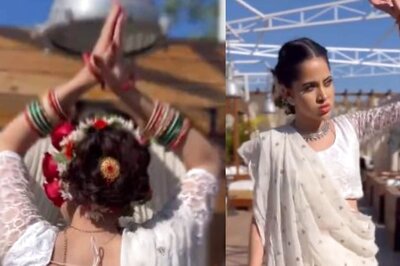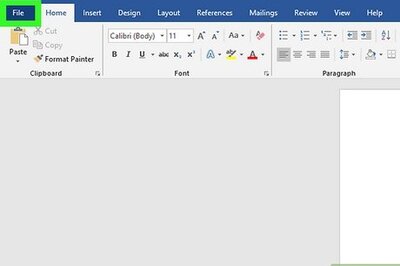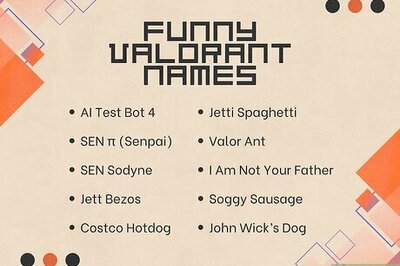
views
New Delhi: The Supreme Court will deliver its verdict in the politically contentious Ayodhya land dispute case on Saturday. While all parties to the dispute have been eagerly awaiting the verdict, one man in particular is counting down to the day the Ram Temple is constructed.
Kameshwar Chaupal, who belongs to a Dalit family, had laid the first stone for the temple’s construction on November 9, 1989, three years before the demolition of the Babri Masjid at the disputed site opened a tumultuous and violent chapter in India’s history. Now 63, Chaupal speaks to News18.com on what the verdict would mean for him and how the demand for a temple is justified at a time when unemployment and economy need attention.
Edited excerpts:
The Supreme Court is expected to pronounce verdict before November 17. What are your expectations?
My sentiment is uncompromised on Ram Mandir. There is no place for any other view. Ram Mandir should be built with the cooperation of the entire samaj. When I say entire samaj, I mean that all sects and religions -- Hindus, Muslims, Sikhs and Christians -- should come together for the construction of Ram Mandir. With this, we will send across the message to the world that in Bharat all sects and religions are treated equally, and respect each other’s religious sentiments.
Bharat is considered the vishwaguru because it has, since ancient times, led by example for unity. The same sentiment should be celebrated with various sects coming together for Ram Mandir construction.
What have you been doing while waiting for the verdict?
It’s been a long wait and in that time I have attempted to take the sentiment of Ram to the samaj. Ram yatharth hai, Ram is desh ka pran tatva hai (Ram is reality and essence of the country) . We expect everyone to join us in this task. We were not at peace even once, we could have followed other routes to fulfil our dream, but we had faith in the judiciary, Indian democracy and the Constitution.
From Atal Bihari Vajpayee to Narendra Modi’s second term, how do you think different BJP-led government dealt with the Ram Mandir aspirations?
To be honest, it is not just about the BJP. Every government had worked for Ram Mandir, even the Congress. PV Narasimha Rao-led government saw the shilansyas (laying of foundation stone), while Rajiv Gandhi got the locks opened. I have seen the efforts of both Rao and Gandhi. But people in the society could not move forward with this sentiment for the nation. Having said that, the case is in the court, it is out of the purview of any government or political party.
Would you like to reflect on how politics of the country changed since the demolition of Babri Masjid and in the run-up to the case in SC?
All I want say is that the Constitution gives space for opposition views. If political parties thought about that, we would have had the Ram Mandir a long time ago. The issue was used for vote-bank politics. People took extreme fundamental stands on the issue that stopped them from reaching the truth. Everyone started taking sides. If they had sided with Ram, the fissures in the society would have dissolved. We had the Somnath Temple issue and the then home minister Sardar Patel and then president Rajendra Prasad handled it very well. It was considered a taint needed to be removed to restore the Indian glory.
What we saw in Ram Mandir case?
In the Ram Mandir case, Samajwadis and Communists questioned the veracity of the claims. Interestingly, the Congress also joined them in calling it a ‘myth’. What an irony. Mahatma Gandhi gave us Raghupati Raghav Raja Ram and the Congress gave into power politics. The party started to question Ram later on. Congress ne satta ke lobh me Ram ke astitva ko nakaar diya aur vote ke liye rajneeti ki (Greedy for power, the Congress denied Ram’s existence and did politics for votes).
The government has shown discomfort with the term ‘Dalit’. Your views?
When India gained Independence, we all became the sons of Bharat Mata. The caste-specific names are a legacy of vampanthi (Left). The Indian government had decades ago issued the notification to refrain from using caste-specific names.
The Ram Mandir verdict is much awaited, but critics also say that the new generation needs jobs, not temple...
Is desh mein Ram aur roti dono chahiye. Ram rahega tabhi roti bachegi (India needs both Ram and roti. Only Ram can get us roti). We will have the bread only if we have Ram). For years, the country has been the slave. Nothing worked for us and then one day Bankimchandra Chatterjee composed Vande Mataram calling for freedom. We had not seen Bharat Mata then. But the sentiment was evoked at the time, was strengthened the youth and we fought the British. Ram is going to have the same effect and give us strength. Ram nahi rahnege, toh roti ke lale padenge (There will be a dearth of roti without Ram).

















Comments
0 comment